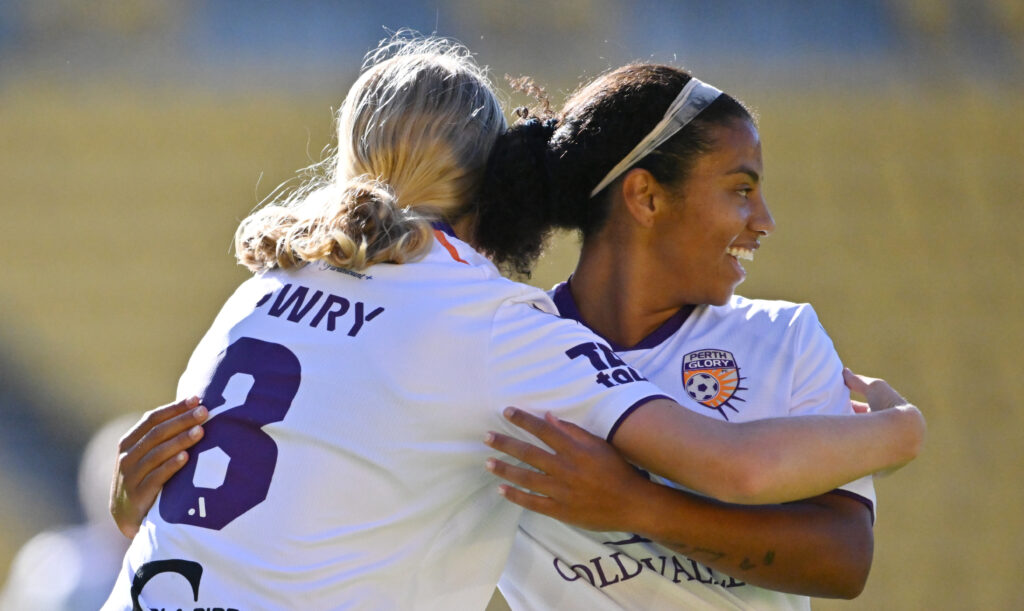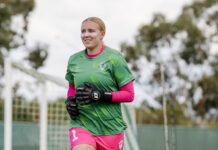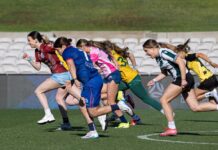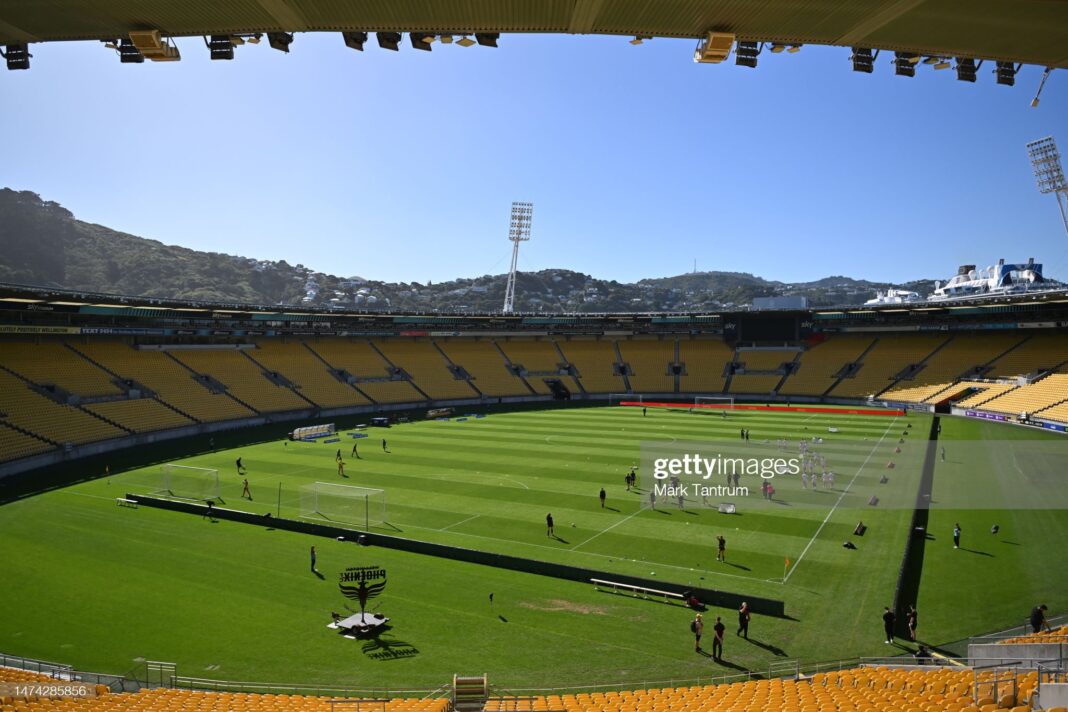
Perth Glory’s recent 1-0 victory in Wellington marked their seventh away trip of 2022-23. They have travelled 41,000 km over the course of this season – upcoming away trips to Sydney and Brisbane mean Glory will finish their campaign with 54,800 km of air travel.
Not all of those journeys are flight-only, with games in Newcastle and Ballarat needing additional coach trips. Only Wellington Phoenix can claim to travel as much, but their relative proximity to the east coast of Australia means they don’t fly as far as Glory do when they play in Brisbane, Sydney or Melbourne.
These long-distance trips are a fact of life for all Western Australian sporting teams. Knowing this doesn’t make the trips any easier, and without meticulous planning and preparation performances could suffer. We spoke to the club about how travel impacts them and how they manage the various issues that can arise.
Coach Alex Epakis explained how training is managed in the lead-up to a trip and also at the final destination.
“Our training loads are very much dictated by our weekly GPS loading. We work very hard to ensure that we have consistency and without much spike/drop as this can have an effect on injury. The typical training week has activation and active recovery, high load, low load, intense running and change of direction KPIs. As a staff group, we typically adjust according to how the players report on their daily check-in prior to each session but ultimately we run off a scientific approach to loading and we adjust to individual player needs when required. It definitely is a mix of science and ‘the coach’s eye’.
“More often than not we do our final training session in Perth, before going to the airport. For the New Zealand trip though we trained at a local field. This is typically a one-hour session, focused on tactical aspects and set pieces. We try and get the right mix of giving information but also giving players the mental space to get themselves ready for the match.”
Keeping players occupied outside of game time is another factor and Epakis provided insights into a typical game day schedule.
“Given that some players are early risers and some prefer a sleep-in on match day – we tend to provide a breakfast window at the hotel to cater for everyone. When possible we always provide flexibility because we want the players to have their consistent routine as much as possible in away or home fixtures. Typically the breakfast window is from 8-10 am with a compulsory team walk after breakfast. Most of the players then have free time until lunch (or they get pre-match physio). After lunch, we have our final team tactical meeting and then we are on the bus and head to the ground 1.5 hours prior to kickoff.”
All of this training and preparation requires equipment and support staff. We asked Epakis about the process involved in making sure everything arrives at the right place and at the right time.
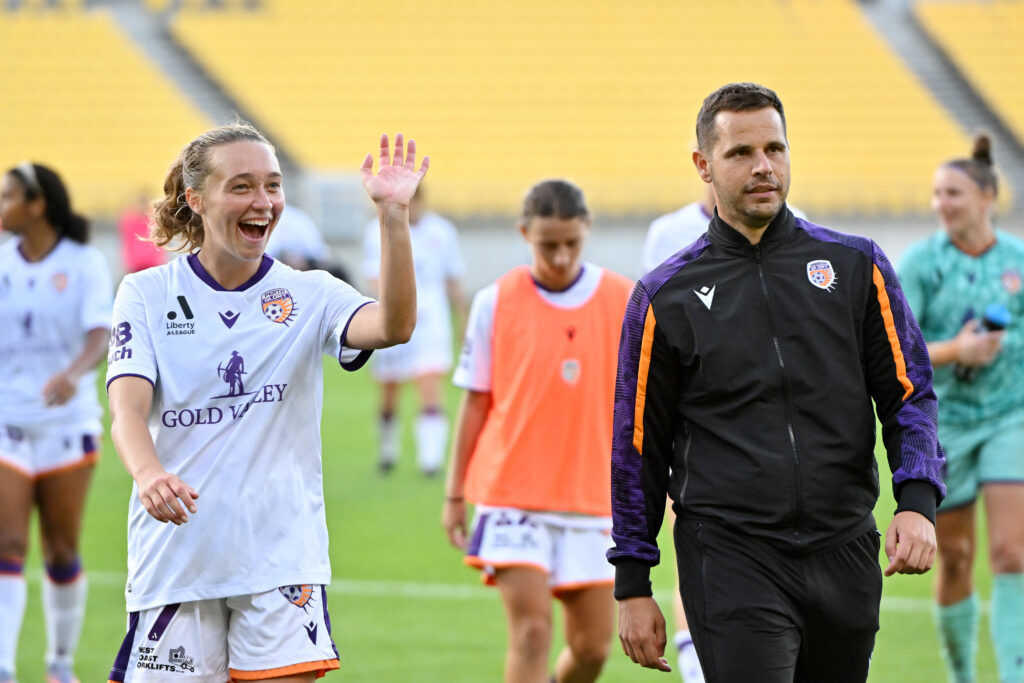
“For the New Zealand trip, we had to pack a bit more training gear than usual. We took balls, mini aluminium goals, cones, bibs and a ball pump. From a medical point of view, we always carry a large physio treatment bed and a physio box, which has all the necessary physio and medical resources. From a prehab and personal recovery aspect, we also travel with recovery compression legs, foam rollers and mats. This is mainly overseen by the superstar staff member Adam Kirk who does a phenomenal job in overseeing travel logistics combined with his other performance role.
“In total, we have about 8-10 items that are team related and all the players and staff do a really great job in assisting with the transport of these team items; from hotel to loading and unloading on the team bus and general transport. It really is a great team effort.
“We typically travel with 16 players, and five staff which is made up of coaching staff and a physiotherapist. In terms of travel times, we also have to add on personal travel for the players and staff to get to the airports for departure. The players arrive one hour prior to take off for all domestic flights, and for the New Zealand flight, we arrived 2.5 hours prior.
“For the New Zealand trip, we left two days prior (Thursday morning in Perth) and returned back very late Sunday night (in Perth). We travelled via Sydney and had a stopover in both directions for a few hours. In total, each leg of the trip was roughly 12 hours door to door.
“The overall flight bookings, hotel booking and general itinerary is planned well in advance of each trip (2-3 months) and this is done by myself and the club operations officer who liaises closely with the APL. The APL has a resources centre that assists with the hotel, bus, training pitch and flight bookings.
“The New Zealand trip also required passports and visas and this is something that the club operations manager does well in advance of the trip. They sorted out visas for our international players and double-checked that all passports were up-to-date and valid.”
Player rest is an important aspect of travel and well-being. Epakis outlined how the club manages this with ever-changing team selections, which means room buddies can often change.
“Players tend to provide a rooming preference list early in the season. We attempt to keep things consistent as much as possible. Whilst we are on the trips we try and give the players as much space and time as possible – we know some have their routines and habits so we don’t want to disrupt that too much. We do have team time across meals and team meetings, and match day team walk – but we want to try and find the right balance for the players.”
This process was seriously tested for the recent game in Wellington and Epakis explained the challenges presented by this unique trip.
“Ultimately the biggest difference with this trip was the significant amount of time to get from door to door, whilst also trying to maintain a sleep pattern that reflects our standard AWST timings. The team dynamic typically also really improves with these longer trips as the players get extended opportunities to spend time together during team meals and further build relationships and connections. We travel with the intent of being clear that it is ‘business’ and we act as a professional outfit, with the main focus on performing and returning with a positive result. On this occasion, that was the underlying feeling on the return leg; a long trip well worth the three points!”
An unfortunate reality for any sporting team is the ever-present risk of serious injury, and Glory experienced this first-hand in Melbourne when Rylee Baisden ruptured her ACL against Melbourne City. Epakis outlined the protocols when this happens.
“This is always case by case and we rely on the information and assessment of the physio and the doctor provided by the home club. Each time we play away, it is compulsory for the home team to provide a doctor to assist with medical emergencies. More often than not the players will fly back home with the team unless medically it is required that they stay longer or return earlier.”
The return flights allow a little recuperation for the players but the major rehab time occurs after arrival as Epakis explained:
“Typically the day after the match all players have access to our HQ in Fremantle. We provide a physiotherapist, massage therapists, recovery, compression legs, ice spas, foam rollers and access to a gym for any active recovery. This is typically available to the players over a 3-4 hour time block on the day off and they work off a personal recovery protocol. I believe the players take this aspect of their profession very seriously and they are always actively looking to get on top of their recovery.”
Travel time is something that can’t be overstated. For those players who are in full-time employment, there is the added pressure of getting time off work. Glory’s squad only has one player facing this issue and the club works hard with her to ensure she has the necessary time to meet deadlines. A flexible employer is also a prerequisite to ensuring a player is available for the whole season.
The processes outlined above have been built over a number of seasons by the club and Perth Glory can rightly be proud of the way they handle travel. Their away form is excellent with just two losses from seven games, and perhaps their finals hopes are not completely out of the question with two more away trips remaining.
